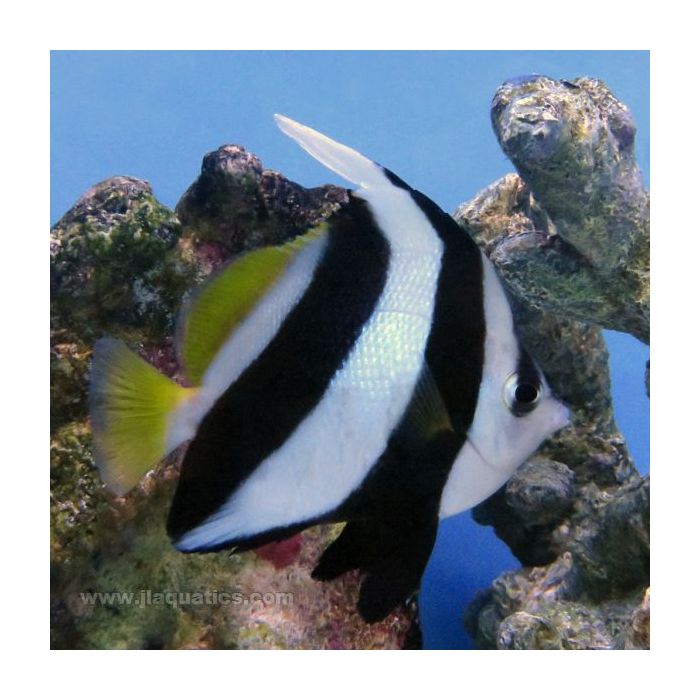Schooling Heniochus (Asia Pacific)
The Schooling Heniochus develops an extremely high, trailing dorsal fin spike. Against its shimmery white body are bold black stripes, and its rear fins are painted lemon yellow. It looks somewhat like a Moorish Idol but is much easier to keep. It is very similar in appearance to the Black Heniochus but is much less common. It can be distinguished by its short snout, rounded breast, and anal fin which drops down vertically from the base of its tail and is colored equal parts black and white. It grows up to 7 inches and needs an aquarium of at least 125 gallons.
This species is normally quite peaceful and shy, and should not be kept with aggressive tank mates. It can be kept singly or in pairs but does best in a group as long as all individuals are added at the same time to a large aquarium. Heniochus do not show differences between males and females. Heniochus are also known as bannerfish and are related to butterflyfish and angelfish, but lack the angel's distinctive cheek spines.
Butterflyfish and bannerfish may eat anemones, so they should not be kept in the same aquarium with one unless it is guarded by aggressive clownfish. The fish knows to attack the anemone on its mouth, which does not sting, and will make a quick meal of it. Many species also benefit from filamentous algae in the aquarium to graze on.
This species is considered very reef safe and does not typically bother corals or other sessile invertebrates. They do not typically bother other types of invertebrates such as crustaceans. However, it is extremely similar in appearance to the Black Heniochus, which is a large threat to sessile invertebrates. Heniochus feel most secure when there is lots of live rock to hide in, as well as plenty of open space for swimming. This species is easy to feed on a variety of meaty and herbivore preparations such as frozen Mysis shrimp, half shell clams, marine algae and Spirulina; it should be fed 2-3 times a day.

